Buying a house is not only a huge milestone, it’s also an incredibly important investment. Unfortunately, some properties may be potential money pits! In this post, we take a closer look at 12 landed properties that you should eliminate from your purchase list.
These include spots with environmental hazards, tricky legal issues, and unreliable construction – just to name a few. Keep reading to learn more about why these properties are best left alone.
1. Property With Unapproved Structure
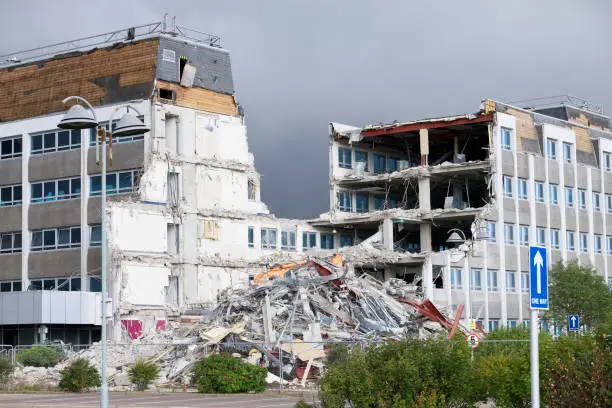
An unapproved structure refers to any construction or improvement made on the land purchased by a prior owner which was not given official approval from the Town Planning authorities. These unauthorized alterations can result in expensive fines and even court cases for buyers.
In severe cases, demolition orders may also be issued or restrictive covenants applied which force you to fork out hefty fees to make the structure comply with regulations. Therefore, when surveying prospective properties, never fail to inquire about any past additions that were not cleared by public officials as they pose ongoing risks and potential headaches in the future.
2. Property that is Depreciating in Value

One of the key things to watch out for when buying a landed property is the value trend of the property. Signs of possible devaluation include an infrastructural deficit in the form of inadequate transportation links and public amenities, as well as an uncertain political climate or weak economic landscape which could lead to decreased property values over time.
Furthermore, if a neighborhood starts showing signs of aged buildings and poor street maintenance, you may have stumbled upon an area that might be worth avoiding. In such cases, deciding on whether the property is a worthy investment or not usually boils down to whether you can get a good price now and turn around fast enough before the value depreciates further.
3. Property Prone to Environmental Hazard
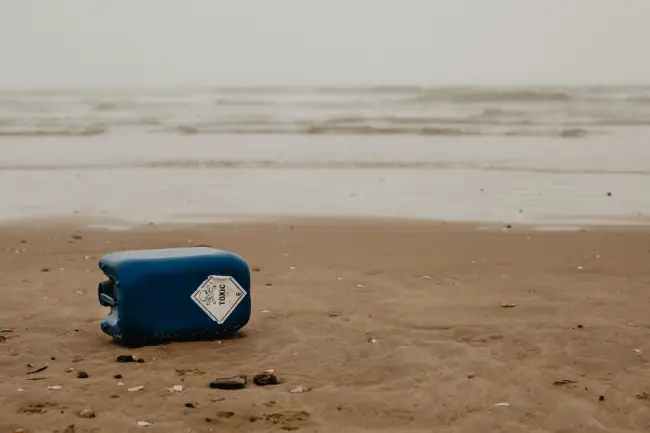
Properties located in flood zones, near garbage dumps and industrial areas, or built on unstable landfills or soil, are dangerous kinds of landed properties you should never purchase. These are high-risk locations as they can lead to extensive damage from natural disasters like flooding that can cause massive destruction to property.
Additionally, buying property that is already affected by environmental hazard or has been contaminated by industrial pollution may incur high repair costs after the initial purchase. Ultimately, for the sake of preserving your financial health and well being in the long run, it’s best to stay away from these risky and potentially hazardous types of property.
4. Property That Requires Significant Renovations

You should, by all means, avoid properties that requires significant repairs and renovations. The extent of the renovation and remodeling that needs to be done, along with the sum of funds necessary to complete it, may exceed what you are comfortable with in terms of budget and time spent.
Certainly, there may be times when property that has major renovation requirements could be acquired at a deeply discounted price however savvy buyers should keep in mind the hidden costs involved with these projects and should assess whether the work could turn out to be a huge minefield.
5. Property With ‘Omo Onile’ Troubles
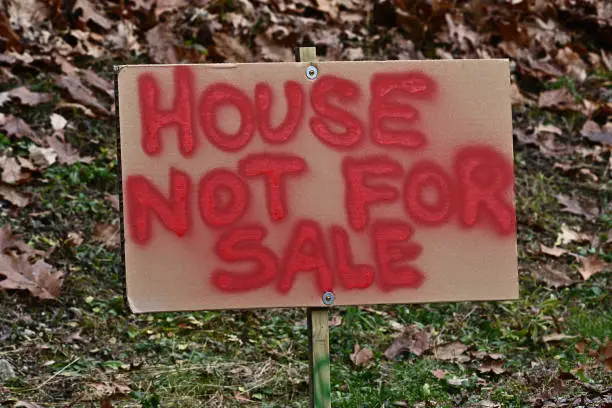
Being entangled in a land dispute with Omo Oniles, or Yoruba land grabbers, can put tremendous strain on any property deal. With the potential for long and winding legal battles and inflated costs due to unlawful occupancy, this type of landed property is a major financial risk.
When going through the steps to acquire property, special attention should be paid to units that are exposed to this kind of trouble. It is key to do extensive research and even consult an experienced local lawyer if needed; spending time and money upfront is essential for any successful and smooth purchase process.
Therefore, it is safe to say that buying property with Omo Onile troubles should be avoided at all cost as the difficulty often outweighs the potential benefits.
6. Poorly Constructed Property

Poorly constructed property is a type of landed property that buyers should be aware of before making a commitment. Such properties may have defects from the beginning, from incorrect grading to inadequate insulation and ventilation, and can end up costing the owner more in long-term repairs.
A property deemed poorly constructed requires an even further inspection to determine whether repair costs might exceed the actual value of the investment or not. Given this, you should always check for signs of improper construction with your own eyes before committing to any purchase – no matter how good it might appear on paper – in order to avoid any costly surprises later on down the road.
7. Property Without Complete Paperwork

Buying property without the necessary documentation can be an incredibly risky decision. Not only could you be purchasing a property with underlying mortgage or liens, but the deed or title could be faulty or incomplete.
Without proper documentation, homeowners could find themselves dealing with very costly legal issues that have nothing to do with what they intended to purchase in the first place.
It’s important for prospective buyers to make sure that any real estate property transaction is backed up by all of the necessary property papers – anything less should be avoided altogether in order to protect yourself from potential problems down the road.
8. Property Owned by Disreputable Individuals or Businesses

Certain business owners and real estate developers in Nigeria have acquired a questionable reputation due to nefarious activities. Buying property from such establishments or persons can be a bad decision, not just from the moral perspective but also regarding value for money.
Not only could your investment be lost, but any receipts you get may not even hold in court should you find yourself in any legal disputes with them. To avoid such problems, diligent research is key before making any land transaction. If the origin of the property and the title become sketchy or suspicious, it’s best to stay away no matter how good a bargain might appear to be.
9. Significantly Overpriced or Underpriced Property
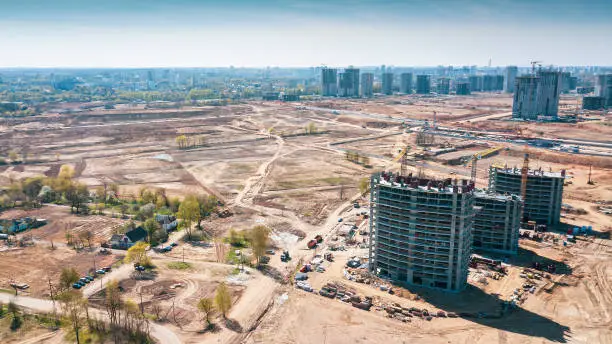
If a property is priced too high, it could be a hint that the seller is trying to take advantage of your lack of knowledge of the property’s value. Conversely, an offer that is too low could be a sign of fraud.
It’s important to be aware of the potential pitfalls associated with any property that is either overpriced or underpriced in order to make the best decision possible when it comes to purchasing a house in Nigeria.
To mitigate these risks and ensure you don’t buy into a far lower quality than expected, carry out extensive research and trust only reputable sources when making such important investment decisions.
10. Government Acquired Property

Landed property that is under government acquisition, also known as expropriated properties, can be a buying nightmare for investors. These properties are seized by the government due to arrears in payment of tax or non-payment of related bills or for any other civic purpose.
Once the land is acquired, the former owner no longer retains any rights over the property and often has little legal recourse. As an investor, you have to be especially cautious when it comes to buying such lands as these do not come with title deed; making ownership difficult to prove beyond doubt.
Moreover, these lands are usually restricted from redevelopment or any kind of improvements, leaving their future uncertain and resale value minimal. Therefore, for your own peace of mind, expropriated property should be avoided at all costs.
11. Abandoned Properties
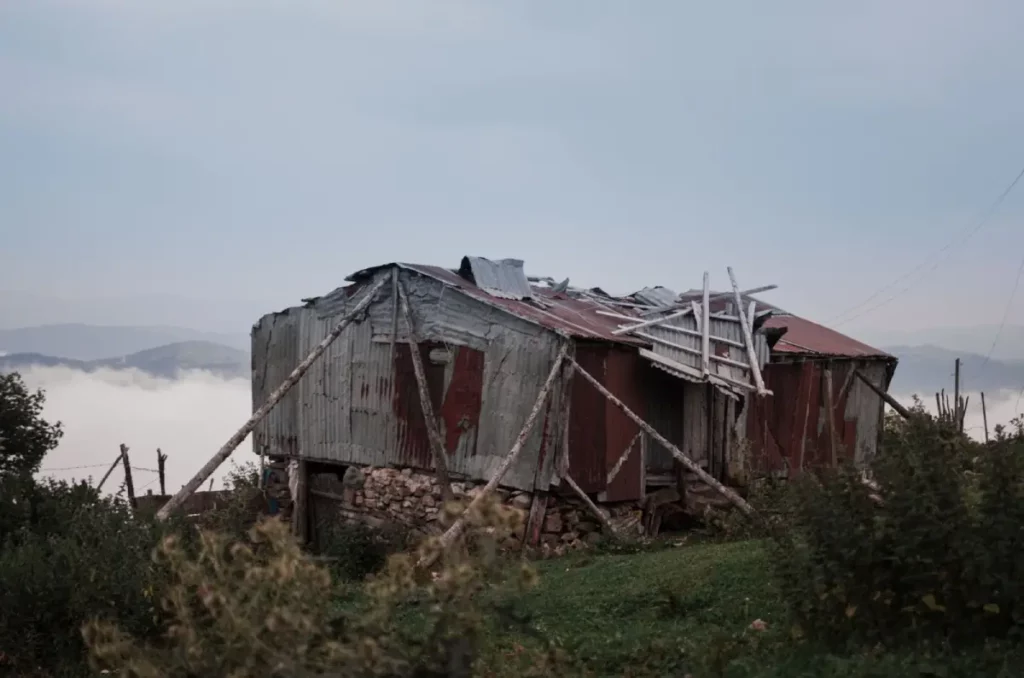
Properties that have been abandoned for many years can be a risky purchase. These properties may have a number of problems, including structural damage, pest infestations, and outdated architecture.
When looking to purchase residential properties, one should be aware that these dilapidated dwellings may require more work than they’re able to afford. The true cost and scope of renovations can quickly become overwhelming without the help of current owners or past records. Creating a livable space out of an abandoned property after decades of disrepair could prove too difficult – and expensive – a task for a potential buyer to undertake.
12. Properties With Other Tricky Legal Issues
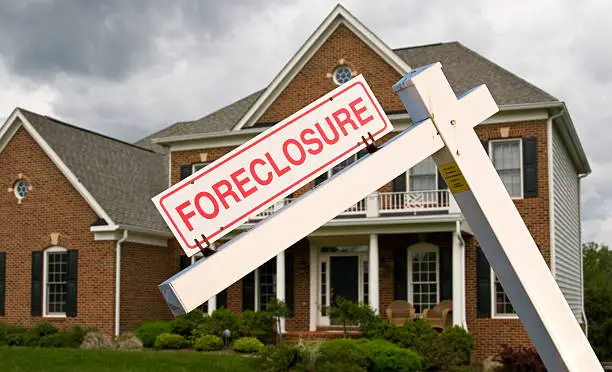
Some landed properties come with additional legal issues that can make even the most experienced real estate investor think twice before signing on the dotted line.
Property with other tricky legal issues might include unclear land tittle, property disputes, zoning and construction violations, government property or a host of other things that could significantly delay progress or reduce returns on investment.
It’s important to understand not just the land documents associated with a purchase but also any stipulations that may have been added in at a later date. If anything looks suspicious, it’s always better to get clarification before moving forward as you don’t want to find yourself facing lengthy complications down the line due to unforeseen nuances in the contract.
FAQ
Is Buying Land a Good Investment in Nigeria?
Buying land can be a good investment in Nigeria, depending on the location and other factors. Generally, land in high-demand areas such as major cities can be a good investment, as the value is likely to rise over time. Investing in rural areas is riskier and may not yield a quick return, but can still be profitable if the land is in an area with potential for development or agricultural use.
What to Look Out for When Buying a Land in Nigeria?
When buying land in Nigeria you should consider the following; authenticity of title deeds, price, size and location of the land. You should also seek legal advice before purchasing a land to ensure that you have all your bases covered.
What Is the Most Profitable Thing to Do With Land?
The most profitable thing to do with land is to develop it for commercial or residential use. This could include building apartment complexes, constructing retail stores, or developing office buildings. Other possibilities include creating agricultural land and leasing it out to farmers, or creating a resort or vacation destination.
What Is the Most Important Thing to Avoid When Buying Land?
The most important thing to avoid when buying a plot of land is to make sure you understand all of the legal and financial requirements associated with the purchase. Make sure you understand the history of the of the land, as well as any potential environmental hazards.
What Is the Smartest Way to Buy Land?
The smartest way to buy a parcel of land is to research the area thoroughly and hire a real estate company/agent to help you navigate the process. Make sure to get a thorough inspection of the land and understand all the costs associated with buying the land. Also, be prepared to negotiate a good deal and be willing to walk away if necessary.
What Is the Biggest Threat to Real Estate Market?
The biggest threat to real estate industry is the potential for a market crash, either due to a recession or a major shift in the economy. Other potential threats include natural disasters, political instability, and changes in taxation or zoning regulations.
Conclusion
Nigeria has a wealth of property to offer but due to a number of factors, there are certain houses and estates that must be avoided. Between hikes in price, dilapidated buildings, pollution, flooding and omo onile issues, it’s important to properly research each potential purchase.
This article has covered twelve properties that you should never touch when searching for property in Nigeria. Be sure to weigh up all the pros and cons associated with each choice and choose wisely. Never let a good bargain cloud your judgement; look out for your future needs and make the right decision when deciding on your new home!










